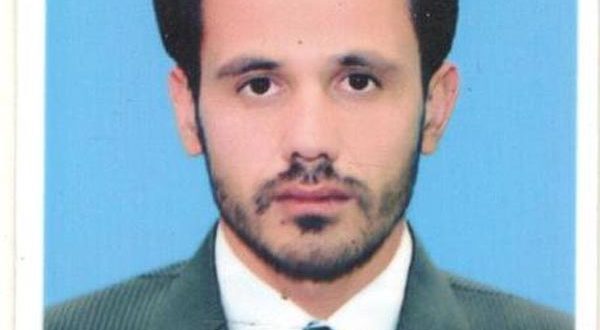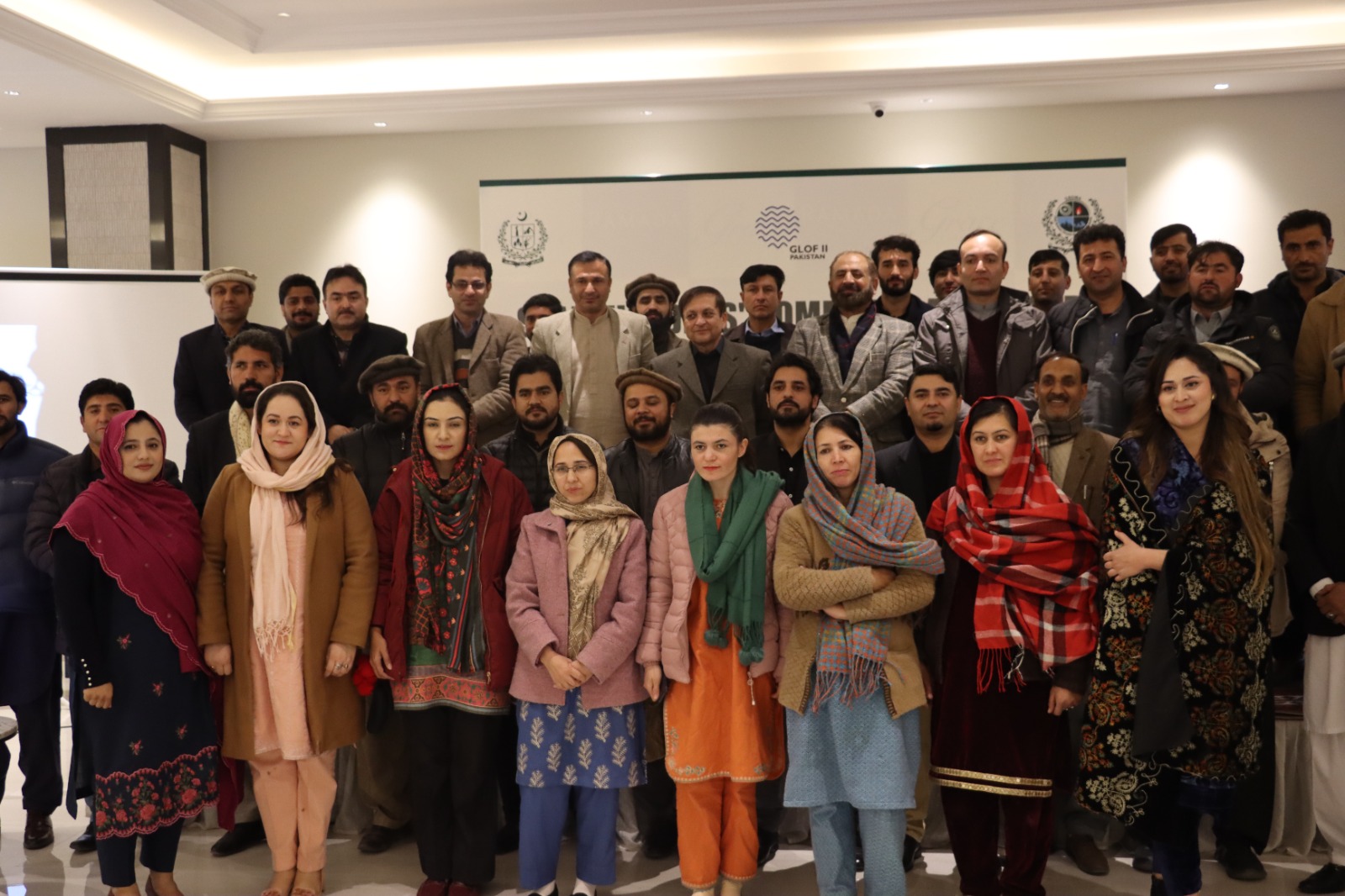By: Bashir Alam
When you are denied an identity, recognition, and autonomy of your dire need then obvious mistrust begun to take deeper root, as a result hater-feeling starts overwhelming over positive perceptions towards a society. Hence, you may end up with having a deep sense of deprivation in that society. History testifies: long pent up sentiments spill over tolerance; people having been ignored for a long period of time had to revolt against their own states to acquire righteous demands; after stranded in long persistent conflicts, they had got their demands approved with the stronger hands. Pakistan’s assertions over putting Gilgit Baltistan in limbo perturbs heavily the nationalists in the same way to launch a joint approach to contain rights which are put aside from discussion tables.
Gilgit Baltistan’s multifarious problems ushered in to mount when it was merged with its erstwhile state of (AJK) instead integrating it with the mainstream government; even though, it had got the independence likewise Pakistan had from the subcontinent in 1947. People of Gilgit Baltistan revolted against Maharaja Hari Sing, when he proclaimed the accession of his princely state to India, choosing Pakistan as their prospective state. Rather than Gilgit Baltistan would have been welcomed, it was discouraged by Pakistani government and its destiny tied with a beleaguered region. The most wondering dot for someone pondering into history is: how came the region could have to be amalgamated to that state whereon it had got independence from it already; how so, even the local rulers wouldn’t taken in confidence – making them part of the committee as beyond – while deciding its future destiny. Its status is fractured irrevocably to constitute a notional stance over whole Kashmir region by the most controversial Karachi Pact.
The right of self determination would remain lingered unless subsequent steps in compliance with UN general resolution of 1948 would not be taken, yet the region demands, it can be strengthen establishing a political unit packed with all necessary powers so that it would be able to exercise rule over its own people. Various presidential orders have been propagated in the region since its amalgamation using administrative means viz presidential ordinances. Of those ordinances, FCR proved to be most detrimental one as people were denied to have political and administrative control over their own region. In 1974, Zulfiqar Ali Bhutto somehow sensed the deprivations of the region abolishing FCR, and promulgated Northern Area Council Legal Framework Order. Some administrative and judicial reforms were introduced through NACLFO but the region bared to enjoy all fundamental rights in the ordinance.
In 2009, the then People Party government again came up with the constitutional settlement following supreme court’s orders of 1999 in which it had bound the state to provide all necessary rights deemed necessary pronouncing its dictum while considering people of G-B the citizens of Pakistan just as people in rest of the provinces. PP government consolidated the defect to control over the region reproducing G-B constitutional assembly and G-B council. Gbians had rejected ‘the 2009 order’ terming the package insufficient with clauses of fundamental rights; G-B legislative assembly was designed in such a way that it remained subservient to G-B council for approximately a decade – as a dummy institution with demobilize electives – because all major subjects of legislation were put under GB council.
Although ‘Gilgit Baltistan order 2018’ has repealed the supra-constitutionality of G-B Council confiscating the legislative powers, yet the manner used for legislation opened up ways for ruling governments of the country to enforce regional monopoly on the people. In the beginning, Governor of the province was made stronger establishing G-B Council by Gilgit-Baltitan 2009 order; now, it is Gilgit-Baltistan Order 2018 that provides wide range of powers to the Prim Minister of Pakistan, even the whole governance system is hereby subordinate of him according to current setup.
The Gilgit-Baltistan order 2018 has made the Supreme Appellate Court of G-B subservient to the Prim Minister of Pakistan that it can not issue any kind of decree or order against him. Moreover, it has vested sweeping authority pertaining with legislation in PM; however, his authority appears to be nowhere in other provinces. Independent viewers are of the view that the current order has left a vacuum to make the ruling elite accountable before the people of the region owing to absence of any accountability mechanism. In view of currently passed order, supreme appellate court of G-B would no be able to act against malpractices of the ruling ministers being subservient to their political head in the centre. Under present order, Supreme Appellate court of G-B can not even pronounce a verdict in favour of people of the region as its verdicts can be reverted by Supreme Court of Pakistan. For instance, Supreme Appellate court had not allowed to impose G-B order 2018 for an year, terming it bereft of the required demands and needs posed to be provided to the people; but, Supreme court of Pakistan nullified the decision of apex of G-B.
On one hand, the ruling elite of Pakistan and government of AJK do not want Gilgit Baltistan to have pure constitutional status as long as Kashmir issue would not be resolved given that any change thereby would harm government’s stance over Kashmir issue; on the another hand, it had imposed a group of demagogues who seek to reserve their personal interests and whims. Political leaders are so corrupt that they exploit long-standing demands of the region and expectations of people for which they are given votes and elected. In pursuance of political interests, you would see them get affiliation of the political party likely to came into power. Some political leaders, who remain involved in corruption with the then People Party Governor ( Mehdi Shah) have joined PTI and pledge to rescue the region from corrupt leadership in their election campaigns – highly ashamed tempered beings are going to be selected to impose puppetry government over the region under the umbrella of PTI.
Using all powers vested by ordinances, G-B elections have been tempered all the time by the sitting governments in Islamabad and establishing a volitional caretaker governments. In 2015, PMLN government formed a caretaker government, appointing a non-resident person (Birgees Taher) as a governor despite strong condemnation from opposition parties for not being local resident, whose setup paved the way for PMLN’s success. It’s now PTI’s turn that appeared to be more active so far setting up a caretaker government its own, which aspires for his success, following the blue prints of the former governments. It seems that PTI government came up with comparatively a sound plane by appointing retired bureaucrats and sociable youth hath a soft corner for it. One of the Prim Minister’s aid, Aga Behishti, found surfing his time with PTI’s leadership of Nager district. He even participates in PTI’s local and regional meetings and gatherings.
If state of Pakistan wants G-B to be empowered on provincial line then it must amend the article 258 of the constitution of Pakistan which forbade the parliament to legislate over G-B issue and comparatively empowers President of Pakistan to make provisions for peace and good governance through ordinances. All previously promulgated ordinances are the manifestation of article 258 that stands alone to produce provisions and legislation, so that people would have to be appeased as far as possible laying them out of the domain of provincial structure. G-B order 2018 is one of those ordinances – primarily a bogus testimony to a provincial setup. Therefore, until and unless the article 258 of the constitution is in place, all of the efforts to derive G-B on provincial line would be considered non-relevant to the terms set in constitutional demands of Gilgit Baltisan.
The fortune of G-B bogged down in trench diplomacy of Pakistan and India which remained in less viable politicians’ hands at the helm, too; but, gradual swap of leadership into younger blood breads a new hope among the people on another side. Younger generation must come up with relatively a comprehensive plan to assert the intent of people on the region, they should quest for inclusion with Pakistan on purely provincial lines rather than having been fool to administratively designed ordinances.
 Daily Mountain Gilgit Baltistan News Website News website of Daily Mountain Gilgit Baltistan
Daily Mountain Gilgit Baltistan News Website News website of Daily Mountain Gilgit Baltistan




